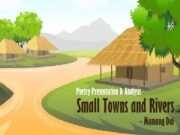
| CONCORD/AGREEMENT |
|
In English grammar, the term concord is used for the same purposes. It is the harmony or agreement between different parts of a sentence, specially the subject and the verb. The Subject of a sentence has a close association to what is being said in the Predicate. The form of the verb should be in straight relation to the number and person of the Subject. Concord is also called Subject-Verb Agreement. The verb must agree with its subject with respect to its number and person. |
Important Rules:
| Subjects and Verbs must agree in number. Examples:
|

| When the subject is singular, the verb should also be singular. Examples:
|

| When the subject is plural, the verb should also be plural. Examples:
|

| When two subjects are connected with conjunction, plural verb is used. Examples:
|

| When two singular nouns assign to the same person or thing, the verb should be singular. Examples:
|

| When one subject is singular and the other is plural, the verb should be plural. Examples:
|

| When one subject is plural and the other is singular, the verb should be singular. Examples:
|

| When both subjects are singular, the verb should be singular. Examples:
|

| When both subjects are plural, the verb should be plural. Examples:
|

| When two infinitives are separated by ‘and’, the verb should be plural. Examples:
|

| When gerunds are used as the subject, the verb should be singular. Examples:
|

| When gerunds are linked by ‘and’, the verb should be plural. Examples:
|

| When the subject is Indefinite Pronoun, the verb may be singular. Examples:
|

| When the subject is Collective Noun, the verb should be singular. Examples:
|

also see:
| ONLINE GRAMMAR QUIZZES with CERTIFICATES |
| ENGLISH GRAMMAR_1 |
| ENGLISH GRAMMAR_2 |
| GRAMMAR: SPOT THE ERROR |
| USEFUL EXPRESSIONS IN ENGLISH SPEAKING |
| WORD FORMATION PROCESSES |
| PHONETICS |







































